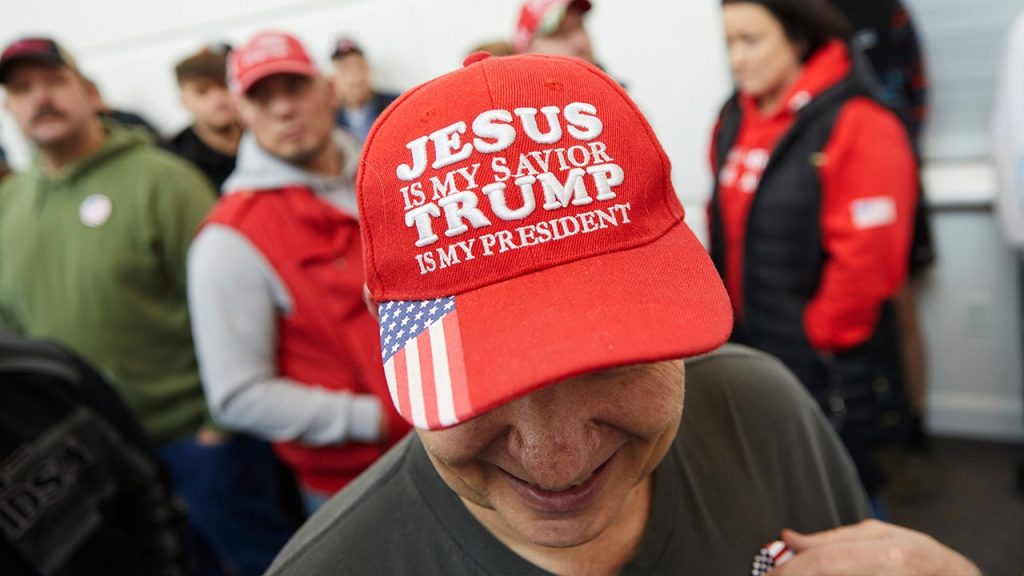Former President Trump criticized President Biden for declaring “Transgender Day of Visibility” to be on Easter Sunday, calling it a disrespect to Christians. He then vowed to create a “Christian Visibility Day” on November 5th if he is elected as the president. This promise was made during a campaign rally in Green Bay, Wisconsin and received applause from his supporters. Trump’s national press secretary, Karoline Leavitt, also condemned the announcement of the “Trans Day of Visibility” as “appalling and insulting” and cited it as part of the Biden administration’s alleged assault on the Christian faith.
President Biden’s decision to recognize “Transgender Day of Visibility” on Easter Sunday received backlash, with many criticizing the timing as disrespectful to Christians who celebrate the resurrection of Jesus Christ on that day. The White House defended the decision, stating that President Biden is committed to bringing people together and upholding the freedoms of every American, despite attempts by politicians to divide the country with divisive rhetoric. The statement emphasized that President Biden will not misuse his faith for political gain or profit.
The issue of the timing of “Transgender Day of Visibility” in relation to Easter Sunday reflects a larger cultural and political divide in the United States. Some view the decision as a deliberate attempt to undermine Christian beliefs and values, while others see it as a way to promote inclusivity and support for the transgender community. This controversy underscores the ongoing struggles between different religious and social groups in the country and highlights the challenges of navigating diverse perspectives and beliefs in a pluralistic society.
The clash between President Biden and former President Trump over the issue of religious visibility days highlights the deep ideological differences between the two leaders and their respective supporters. While Trump criticized Biden for disrespecting Christians, Biden defended his decision as a way to promote unity and inclusivity. This confrontation reflects larger debates in American society about the role of religion in public life and the need to balance different religious beliefs and practices in a diverse and pluralistic society.
The rhetoric surrounding the debate over “Transgender Day of Visibility” and its timing on Easter Sunday underscores the polarizing nature of religious and cultural issues in contemporary America. Both sides of the debate have strong convictions about the importance of their beliefs and values, and this can lead to sharp disagreements and conflicts. Navigating these tensions requires a nuanced understanding of the diverse perspectives and experiences of different religious and social groups in order to promote dialogue, understanding, and respect.
In conclusion, the controversy surrounding the timing of “Transgender Day of Visibility” on Easter Sunday highlights the complex intersection of religion, culture, and politics in the United States. President Biden’s decision to acknowledge the transgender community on a day of significance for Christians sparked a heated debate, with former President Trump and his supporters condemning the move. The clash reflects deeper divisions in American society over issues of faith, identity, and inclusivity, and underscores the need for respectful dialogue and understanding among diverse communities.


